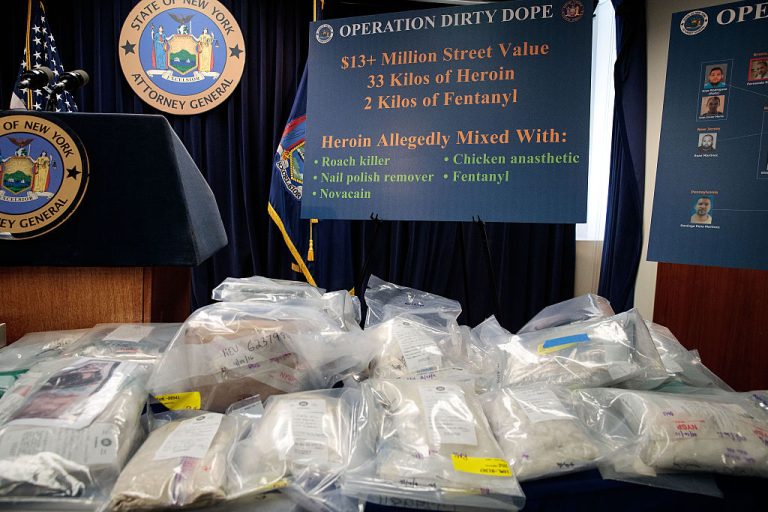The notorious and ever spreading fentanyl crisis plaguing the United States has long since been known to operate by way of entities operating in mainland China, which is ruled by the Communist Party, who ship precursor chemicals overseas—most notably to Mexico—where the drugs are then synthesized and then imported via cartels into the United States.
But a newly released marketing missive-turned-investigative report by a blockchain analyst firm has discovered millions of dollars of digital currency have been used to settle the transactions.
Published by Elliptic on May 23, the report titled Chinese Businesses Fueling the Fentanyl Epidemic Receive Tens of Millions in Crypto Payments stated that its researchers had received offers from “90 China-based companies to supply fentanyl precursors” during the investigation.
MORE ON FENTANYL AND THE CCP
- Mexican Drug Cartels Laundering Money Through China’s Triads After Championing US Fentanyl Push
- British Columbia Opioid Deaths Outpace COVID Fatalities Amid China-linked Drug Epidemic
- California DA Charges Fentanyl Traffickers With Manslaughter After 800% Increase In Overdose Deaths
The company found that more than 9 out of 10 of the mainland’s willing suppliers accepted payment via digital currency.
Elliptic used its blockchain surveillance platform to analyze wallet addresses sent by the China-based actors requesting payment to discover that more than $27 million USD (190 million yuan) worth of cryptocurrency spanning “thousands of payments” had been processed cumulatively.
Success
You are now signed up for our newsletter
Success
Check your email to complete sign up
A year over year increase in transaction volume of 450 percent was also noted by the analysts.
Putting the figure in perspective, Elliptic notes that $27 million would purchase enough fentanyl precursors to produce $54 billion worth of pills at street value.
Moreover, the firm says it was able to connect a wallet address connected to a known fentanyl trafficker sanctioned in 2022 by the United States Department of Treasury to one of the mainland Chinese suppliers addresses obtained in the sting, finding the individual had paid more than $85,000 worth of digital currency.
In screenshots with details redacted provided in the article, Elliptic shows salesmen for the mainland entities telling their undercover researchers, “We sent many…raw to Mexico too. Quality is good. You need raw too?”
“Raw” appears to allude to fully synthesized fentanyl, rather than its component chemicals.
The seller then states it accepts payment by either the Tether stablecoin (USDT) or Bitcoin.
Another entity claimed it had a “double-clean special line” in Mexico that it has been selling products to.
One entity stated that Mexico-based buyers “always use USDT or Bitcoin to pay . It is no problem.”
Included in the article was a photograph of a worker at one mainland China entity showing multiple bags of a white powder represented as physical stock of a fentanyl precursor ready to ship.
The same company provided a “menu” of chemicals that can be used to synthesize opioids, amphetamines, and meth.
An infographic included by Elliptic showed that 66 percent of transaction volume by the traffickers was conducted in Bitcoin, with a remaining 34 percent being done via the Tron and Ethereum subsets of Tether.
“The majority of the chemical suppliers that accepted crypto were using accounts at exchanges based outside of China – all at three specific exchanges,” Elliptic said, declining to state by name which exchanges.
Findings are notable in that the Chinese Communist Party ostensibly bans cryptocurrency exchange from operating in the Mainland and forbids foreign exchanges from servicing China-based users.
“This may also indicate that these businesses use intermediaries to help them convert cryptocurrency payments to renminbi,” the firm stated.
The Triad mafia, a well-known arm of the CCP’s United Front Work Department foreign influence operation, has been known to employ an extensive network of underground banking system across the world, so massive that it has been linked by some investigators to money laundering schemes that revolves through government-operated casinos in countries such as Canada.
















